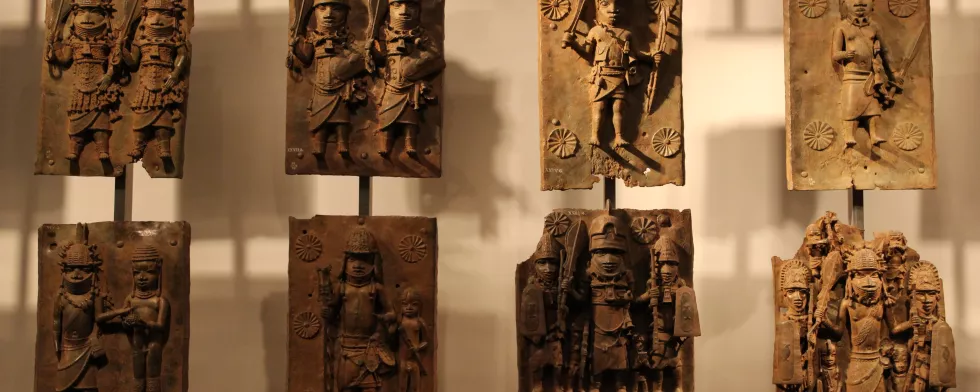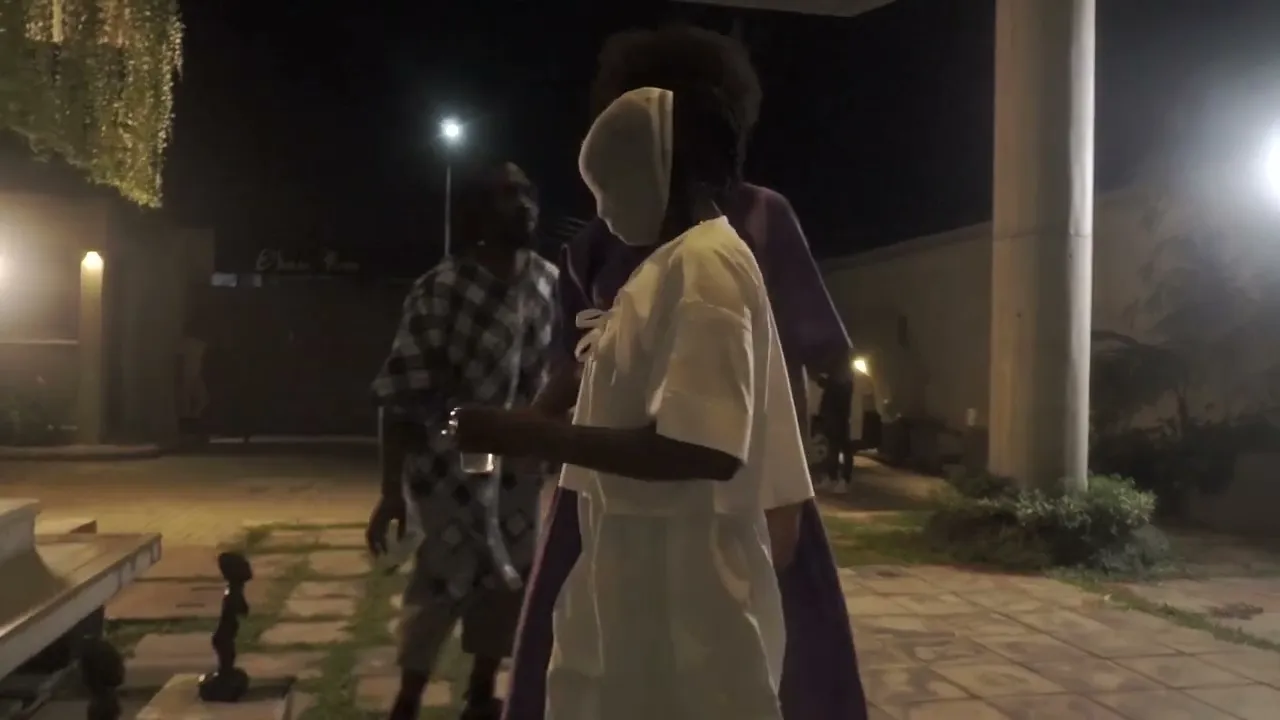Decolonising Restitution
Unexpected Lessons #4
Following the return of Benin bronzes from Germany to Nigeria, hbs supported an event of discussion and art. The aim was to move the restitution debate beyond the narrow focus on just returning looted artefacts and explore the future of Africa-Europe relations, emphasizing broader considerations and reconciliation.

Hbs supported the hosting of an enlightening event in Lagos titled 'Decolonising Restitution,' which took place against the backdrop of Germany's symbolic return of three Benin bronzes to Nigeria. The event, curated by Dr. Mahret Ifeoma Kupka as part of the 'Unexpected Lesson' series, aimed to amplify the discourse on restitution as well as the future of Africa-Europe relations. Recognising the limited attention given to restitution debates in countries of origin like Nigeria, the event sought to encourage collaborative discussions and raise public awareness. By fostering dialogue and highlighting the importance of restitution, the event aimed to contribute to a more comprehensive understanding of the complex dynamics surrounding looted artefacts and their future repatriation.
The event also featured performances by Ayomide Fasedu and Tolulope Ami-Williams, as well as screenings of films by Femi Johnson and Ariella Aïsha Azoulay.
UNEXPECTED LESSONS #4 @ G.A.S. Foundation Lagos – Welcoming Words by Dr. Mahret Ifeoma - TALKING OBJECTS
 Watch on YouTube
Watch on YouTube
Decolonizing Restitution – A Keynote Lecture by Dr. Mahret Ifeoma Kupka
Dr. Mahret Ifeoma Kupka of Talking Object Lab delivers an enlightening lecture on restitution and what it means beyond the return of looted artefacts and how objects can be integrated into communities and museums. The lecture encourages more accessible and inclusive debates on the topic of restitution, decolonization, and the future of African-European relations.
UNEXPECTED LESSONS #4 @ G.A.S. Foundation Lagos – Spoken words performance by AYOMIDE FASEDU - TALKING OBJECTS
 Watch on YouTube
Watch on YouTube
Spoken Word Performance by Ayomide Fasedu
Ayomide Fasedu's spoken word presentation delves into the themes of power, colonialism, cultural erosion, and the ongoing reclamation efforts. Through her poems and readings, she critically examined the rhetoric surrounding restitution and repatriation, challenging the violent legacy of the West in acquiring African objects. Fasedu's powerful words offered a message of hope, emphasizing the significance of reclaiming cultural heritage.
UNEXPECTED LESSONS #4 @ G.A.S. Foundation Lagos – GBEMI Performance by Tolulope Ami Williams - TALKING OBJECTS
 Watch on YouTube
Watch on YouTube
Gbe mi (Carry Me) – Performance Art by Tolulope Ami-Williams
Through an interactive performance, Tolulope Ami-Williams guides audience members to engage in a ritual of cleansing and reconnecting, while a voiceover resonates with emotions of loss, pain, hope, and healing. The performance symbolically references the ongoing restitution process, where African communities are reuniting with their long-lost artefacts returned by Western nations.
UNEXPECTED LESSONS #4 @ G.A.S. Foundation Lagos – PANEL 01: Rooms for possible Futures - TALKING OBJECTS
 Watch on YouTube
Watch on YouTube
Panel Discussion 1
The panel, moderated by Wale Ojo, Editor-in-Chief of The Republic, brought together experts in their respective fields. Dr. Oluwatoyin Sogbesan, an art and architecture historian and consultant, Sarafadeen Bello, an artist and architectural designer, and Femi Johnson, a director, producer, and artist, all G.A.S. Fellows, engaged in a multidisciplinary discussion. With active participation from the audience, the panel delved into diverse perspectives surrounding the ongoing debates on restitution, fostering an exploration of different viewpoints.
UNEXPECTED LESSONS #4 @G.A.S. Foundation Lagos – PANEL 02: transnational collaborations and allyship - TALKING OBJECTS
 Watch on YouTube
Watch on YouTube
Panel Discussion 2
The panel, skillfully moderated by Tracian Meikle, curator-in-residence at The Treehouse, brought together a distinguished group of experts. Independent curator Olufisayo Bakare, arts manager Brenda Fashugba, and acclaimed activist Matthew Blaise comprised the panel. Their collective insights and expertise offered a dynamic exploration of relevant perspectives in the arts, administration, and activism.